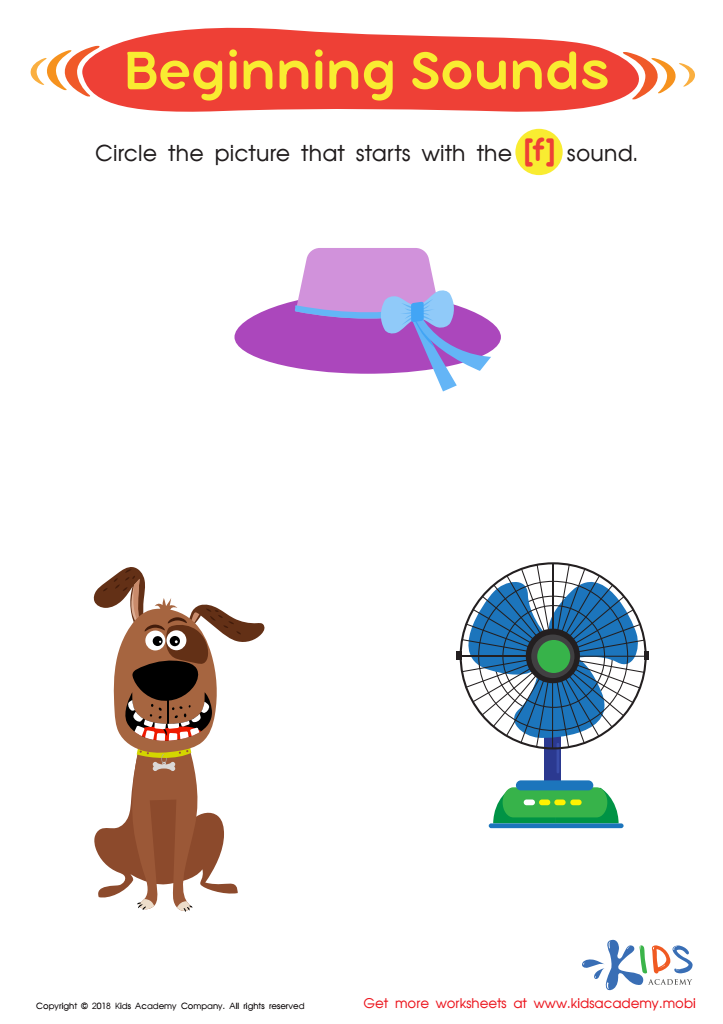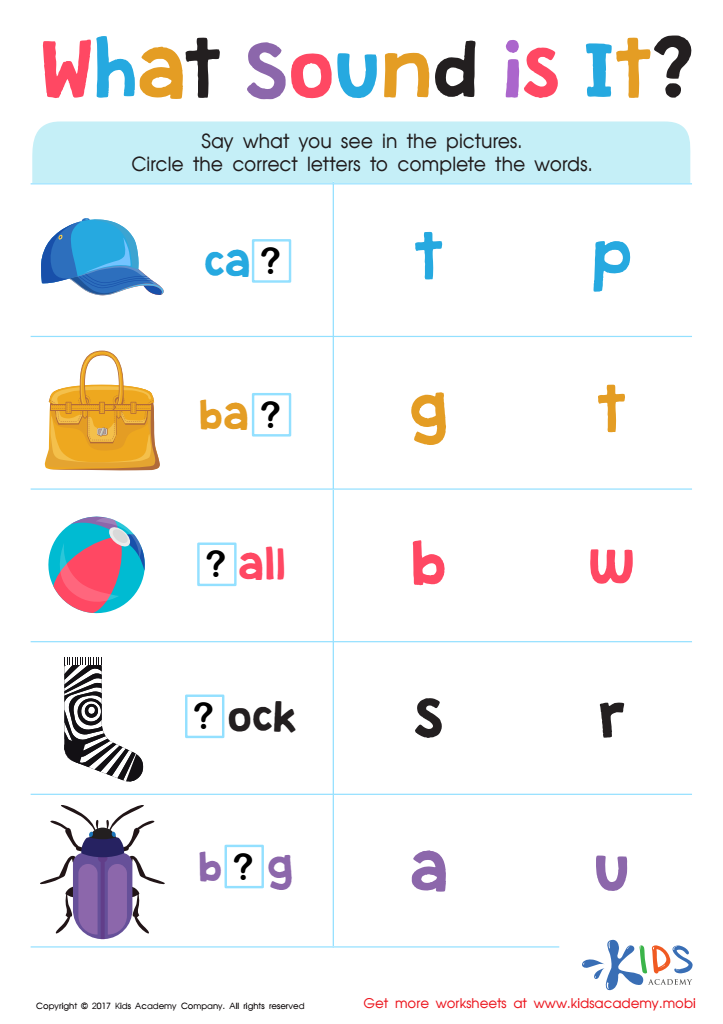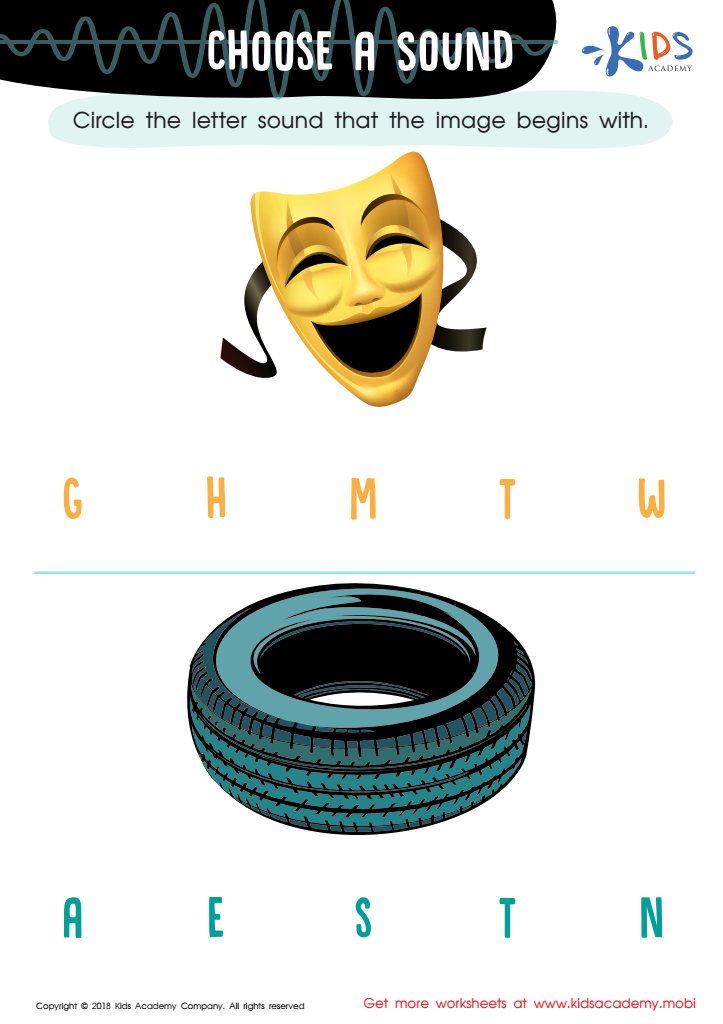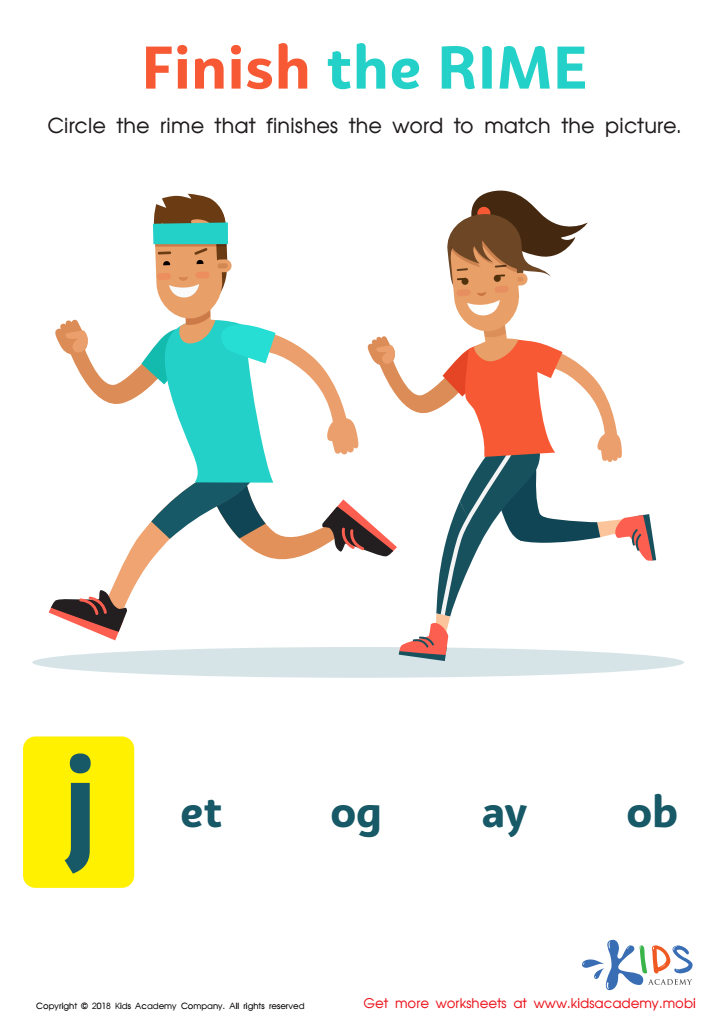Phonics recognition Easy Worksheets for Ages 4-9
5 filtered results
-
From - To
Welcome to our Phonics Recognition Easy Worksheets for Ages 4-9! Designed to boost early literacy skills, these engaging worksheets focus on phonics recognition, helping young learners connect sounds with letters and words. Perfect for preschool and early elementary students, our user-friendly resources support various learning styles and ensure children gain essential reading skills while having fun. With colorful illustrations and easy-to-follow activities, these worksheets encourage practice with vowel sounds, consonant blends, and word families. Empower your child's reading journey today and watch their confidence soar as they master phonics with our interactive and accessible worksheets!


Beginning Sounds Assessment Printable


What Sound Is it? Worksheet


Choose a Sound Worksheet


Finish the Rime Worksheet


Phonics and Word Recognition: Assessment 1 Worksheet
Phonics recognition is a crucial foundation for reading and writing from ages 4 to 9. It involves understanding the relationship between letters and the sounds they represent, enabling children to decode words. Parents and teachers should care about phonics because it directly impacts literacy development. Early mastery of phonics boosts a child’s reading ability, paving the way for improved comprehension and overall academic success.
When children can sound out words, they become more confident readers and eager learners. This skill not only aids in their current educational journey but also sets the stage for lifelong literacy. Additionally, phonics instruction helps prevent reading difficulties, which can lead to struggles in other subjects.
Moreover, engaging parents in phonics activities creates a supportive learning environment at home. Simple games, reading aloud, and practicing letter-sound connections together can reinforce what children learn in school. Collaboration between parents and teachers fosters an enriching experience that enhances children's growth.
In summary, prioritizing phonics recognition is essential for establishing strong reading skills, enhancing confidence, and promoting a love for learning. It's an investment in a child's educational future, ensuring they have the tools to navigate the world of literacy successfully.
 Assign to My Students
Assign to My Students



















